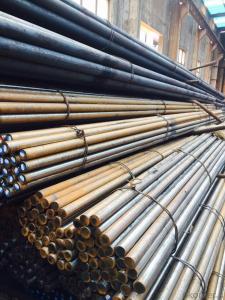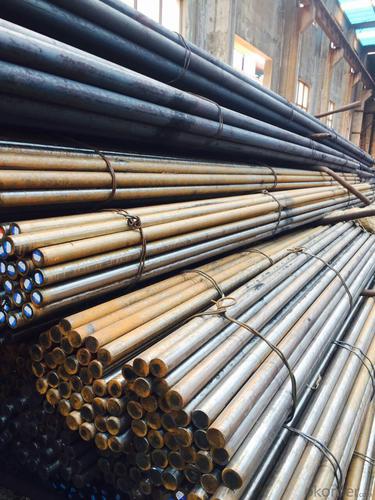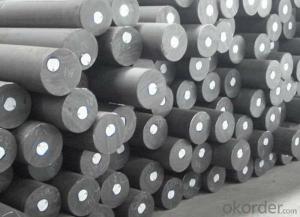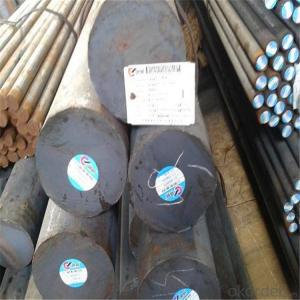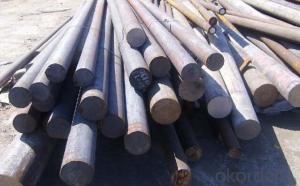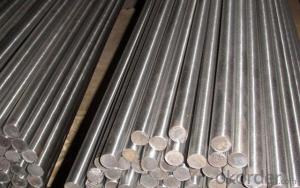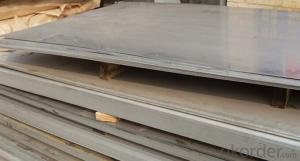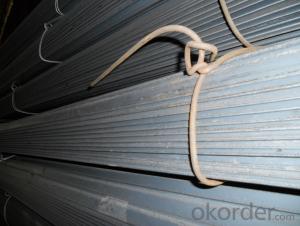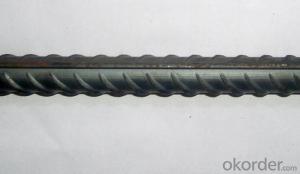Hot Rolled Carbon Steel C22 with High Quality
- Loading Port:
- Tianjin
- Payment Terms:
- TT OR LC
- Min Order Qty:
- 25 m.t.
- Supply Capability:
- 50000 m.t./month
OKorder Service Pledge
OKorder Financial Service
You Might Also Like
Specification
Hot Rolled Carbon Steel C22 with High Quality
Product description:
1: Dia: 100-1200mm;
2: Length: 3000-12000mm
3: Delivery condition:Hot forged, black surface/Peeled/Turned.
4: Delivery date: 30-45 days.
5: MOQ: 20tons.
6: Payment term: 30% in advance, 70% before shipment.
7: UT test standard: Sep 1921-84 c/c.
Characteristic:
Hastelloy C22 is a omnipotent of nickel, chromium and molybdenum mixed alloy, with better corrosion resistance performance than other alloys, for example, Hastelloy C276 alloy, C4 alloy and 625 alloy. Hastelloy C22 have a good resistance performance to pitting, crevice corrosion and stress corrosion cracking, have excellent inoxidability water medium performance, including the wet-chlorine, nitric acid or oxidizing acid mixed acid with chloride ion. Meantime, Hastelloy C22 possesses perfect resistance to reduction and oxidation of processing enviroments, then it can be used in some complicated environment or with many different manufacture target factory depend on the omnipotent performance. Hastelloy C22 possess prominent resistance performance to different chemical environments, including strong oxidizing matter, such as iron chloride, copper chloride, chlorine, heat pollution liquid(organic and inorganic), formic acid, acetic acid, acetyl oxide, sea water and salting liquid and so on. Hastelloy C22 alloy can resist the grain boundary precipitate form when jointing heat affected zone, this performance made it can applied in many kinds of chemical processing.
Chemical composition:
C | Si | Mn | S(≤) | P(≤) | B | Cr(≤) | Ni(≤) |
0.17-0.23 | 0.17-0.37 | 0.35-0.65 | 0.035 | 0.035 | 0.0008-0.003 | 0.25 | 0.3 |
Product show:
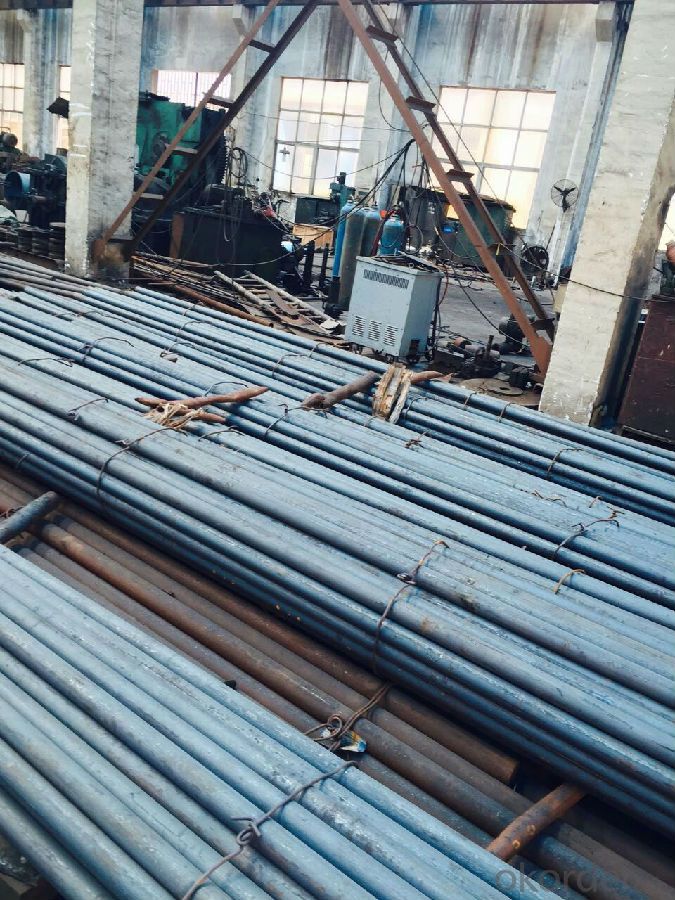
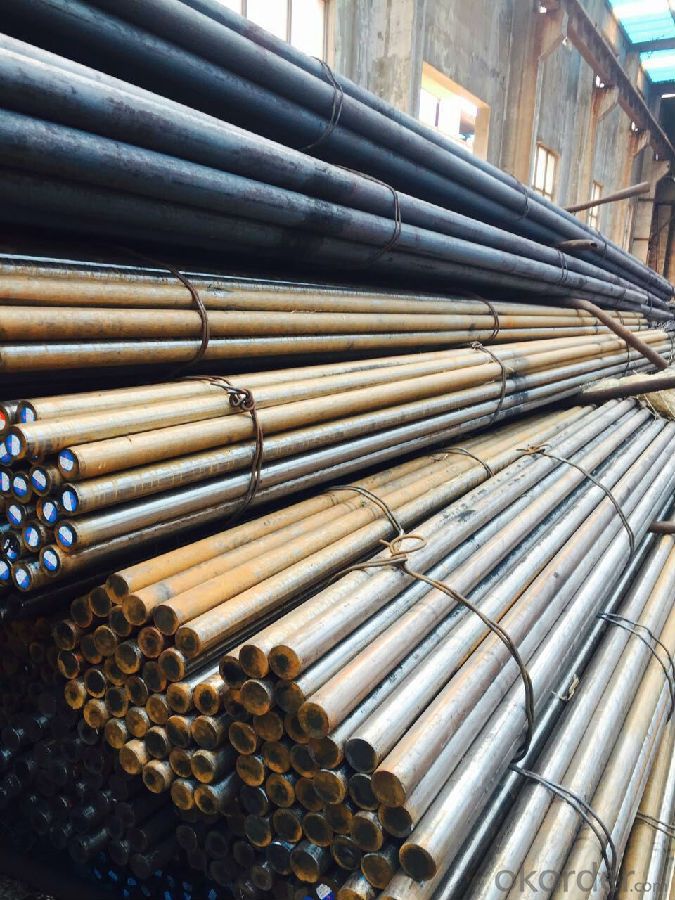
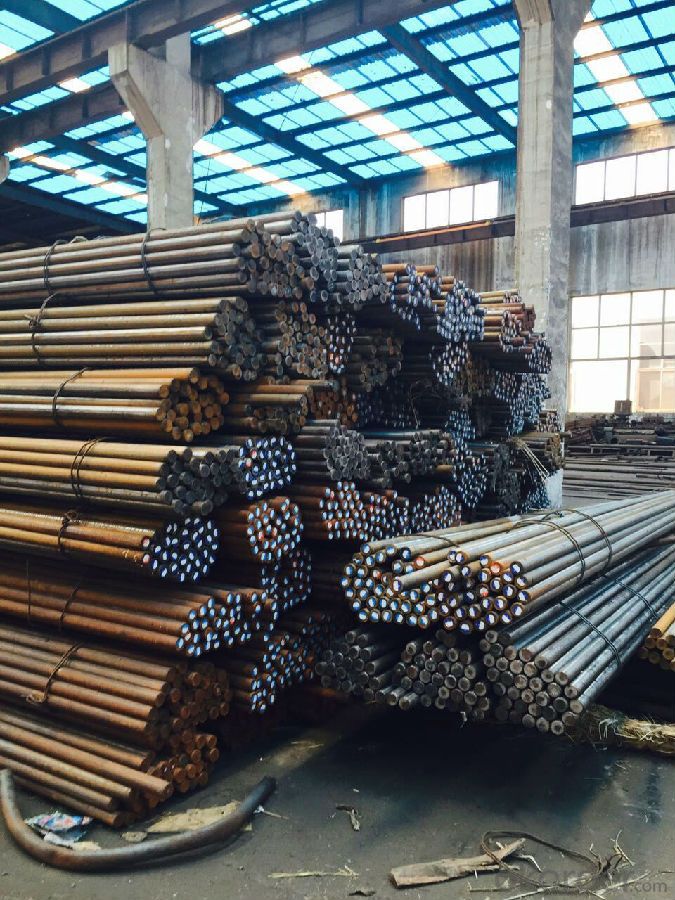
- Q: What are the different processes involved in making special steel?
- The different processes involved in making special steel include melting, refining, and alloying of the raw materials, followed by casting, rolling, and heat treatment to achieve the desired properties and composition.
- Q: How are titanium alloys used in the medical industry?
- Titanium alloys are widely used in the medical industry due to their excellent biocompatibility, corrosion resistance, and high strength-to-weight ratio. These alloys are used for various medical applications such as implants, surgical instruments, and medical equipment. They are often used in orthopedic implants, dental implants, and cardiovascular devices, as they provide long-term stability and compatibility with the human body. Additionally, titanium alloys are highly resistant to bodily fluids and can withstand harsh sterilization processes, making them ideal for use in the medical field.
- Q: What are the different alloying elements used in special steel?
- There are several different alloying elements used in special steel, including chromium, nickel, molybdenum, vanadium, tungsten, cobalt, and manganese. These elements are added in varying amounts to enhance the steel's properties such as strength, corrosion resistance, hardness, and heat resistance.
- Q: What are the applications of special steel in the oil and gas manufacturing process?
- Special steel is widely used in the oil and gas manufacturing process for various applications. It is utilized in the construction of pipelines, offshore platforms, and equipment such as valves, pumps, and compressors. The high strength and corrosion resistance of special steel make it suitable for handling extreme conditions, such as high pressure and temperature environments, as well as corrosive substances like drilling fluids and sour gases. Additionally, special steel is employed in the fabrication of storage tanks and vessels, ensuring durability and preventing leakage or failure. Overall, the applications of special steel in the oil and gas industry contribute to enhanced safety, efficiency, and longevity of the manufacturing process.
- Q: How does special steel perform in impact loading conditions?
- Special steel is known for its exceptional toughness and strength, making it highly effective in impact loading conditions. It can withstand high levels of force and absorb energy, resulting in minimal deformation or damage. This makes special steel a reliable choice for applications where impact resistance is crucial, such as in construction, automotive, and aerospace industries.
- Q: Can special steel be used in the production of artistic sculptures?
- Certainly, artistic sculptures can indeed be produced using special steel. Special steel, which pertains to steel alloys specifically designed and manufactured for specific applications, presents a plethora of benefits that render it suitable for the creation of sculptures. Primarily, special steel alloys boast exceptional strength and durability, enabling sculptors to fashion large and intricate structures that can withstand external forces and environmental conditions. This robustness and resilience prove crucial, especially for sculptures placed outdoors and exposed to weather elements such as rain, wind, and extreme temperatures. Moreover, special steel alloys offer pliability and malleability, allowing for easy shaping and forming. Artists can effortlessly mold and manipulate the steel into various shapes and sizes, bringing their creative visions to life. By employing techniques like welding, cutting, and bending, sculptors can shape the steel into their desired forms, resulting in one-of-a-kind and captivating sculptures. Furthermore, special steel alloys can be finished in diverse ways, such as polishing, painting, or coating, to enhance their aesthetic appeal. This grants artists the ability to incorporate different textures, colors, and surface finishes into their sculptures, further augmenting their artistic value. Additionally, special steel alloys provide resistance to corrosion, which is especially significant for sculptures situated in outdoor or humid environments. This corrosion resistance ensures that the sculptures retain their visual allure and structural integrity over time, reducing the need for frequent maintenance and repairs. In conclusion, special steel presents a wide array of advantages that make it an exceptional choice for the production of artistic sculptures. Its strength, pliability, aesthetic appeal, and resistance to corrosion equip artists with the necessary tools to create visually striking and enduring sculptures that can be cherished for years to come.
- Q: What are the main advantages of using special steel in the power generation industry?
- The main advantages of using special steel in the power generation industry are its exceptional strength, resistance to corrosion and high-temperature capabilities. These properties make special steel highly suitable for critical components like turbines, boilers, and generators, ensuring their durability and reliability in harsh operating conditions. Additionally, special steel's ability to withstand extreme pressure and stress enhances the overall safety and efficiency of power plants.
- Q: What are the applications of special steel in the manufacturing industry?
- Special steel has a wide range of applications in the manufacturing industry, including the production of machinery, tools, and equipment. It is commonly used in automotive manufacturing, aerospace engineering, and construction projects. Special steel's high strength, durability, and resistance to corrosion make it suitable for critical components requiring reliability and longevity. Additionally, its ability to withstand extreme temperatures and pressure makes it an ideal material for manufacturing specialized parts in various industries.
- Q: What are the different heat treatment grades of special steel?
- There are several heat treatment grades of special steel, including annealed, normalized, quenched and tempered, and hardened and tempered.
Send your message to us
Hot Rolled Carbon Steel C22 with High Quality
- Loading Port:
- Tianjin
- Payment Terms:
- TT OR LC
- Min Order Qty:
- 25 m.t.
- Supply Capability:
- 50000 m.t./month
OKorder Service Pledge
OKorder Financial Service
Similar products
Hot products
Hot Searches
Related keywords
